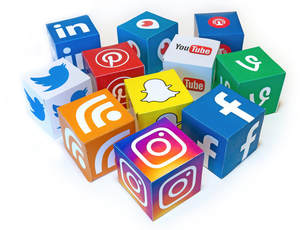 It might surprise you to learn that I read news the “old fashion” way. Yes, I occasionally read news online, but it’s the print edition that I find most satisfying. Each morning, I walk to our box at the end of the driveway, collect The Vindicator, walk back to the house and perform the same ritual I’ve performed for the last ten years since moving to Youngstown. With a cup of coffee nearby, I methodically scrutinize the print version until my cup is empty. Okay. Sometimes two cups. And okay. I don’t read every story. But when the coffee is gone (and usually cold), I move on. We continue to pay for home delivery of The Vindicator for two reasons. First, as strange as this might sound, we view our $17-a-month home delivery bill like we do our other public utility payments. Second, I like the subtle hint of ink stains on my fingers after a particularly long cup of coffee. A new reason that I didn’t really consider until this week: I also like the reliability of getting my news the same way, in the same format, at the same time every morning I have for the last ten years. So, I was saddened to learn that, at the end of this week, our long-time Vindicator delivery person, Faye Davis, is retiring. Coincidentally, I also learned that Vindicator social media manager, Sean Ferguson, is moving on to a new job. In many ways, both Vindicator employees have very different jobs. But in one very important way, they have the same job: reliable, consistent delivery of the news. Davis drives all over God’s creation (i.e., the Valley) in the wee hours of the morning, delivering newspapers from the window of her small car, illuminated by her interior lights. I know this because I had the good fortune to chat with Davis several mornings over the years while my kids waited for the bus. In contrast, Ferguson reliably “delivered” the news by way of Vindicator social media feeds, attracting a worldwide audience to the stories impacting our region. Ferguson was my former student and mentee, but made an impression on his Vindicator co-workers in a very short time. As for Davis, I don’t know her well, but I know her well enough to say thanks by way of this column, something a little more than the small holiday tip we send each year in the form of a restaurant gift card. So, I raise my cup to Davis for bringing the news every morning — without a missed paper in ten years. And to Ferguson, onward and upward. Thanks for being a part of a team that brings us real news every day in print and online, and the confidence that The Vindicator will be there when I walk to the end of the driveway.
0 Comments
 Editor’s note: This is part two of an interview. See December 13 post for part one. Facebook, Twitter and other platforms know they have a retention problem. People are taking breaks from social media. Others have abandoned it all together. On Monday, Twitter began enforcing new rules that would eliminate some forms of speech as well as violent and abusive tweets, logos and images. This announcement comes on heels of criticism from a former Facebook executive who claimed the social media giant was harming society, and that users should take a break from the platform. Before I start a five-day social media fast over the holiday break, I had questions about what to expect. I turned to writer and reporter James Swift, who left social media permanently, and wrote about his experiences: Q. What did your friends say when you left social media? A. I received a few emails asking if everything was OK, but the majority of my social media acquaintances probably didn’t even realize or care I disappeared. And that sort of proves the inherent irony of the term “social media.” Virtually “de-personing” myself didn’t mean anything to my closest friends, because the bulk of our interaction was one-to-one anyway. As it turns out, the people I lost contact with were people I didn’t really enjoy being around to begin with – individuals I’m fairly certain were using the platform as a means of social surveillance, not social interaction. I have gotten a lot of emails from people who have read some of my articles about the ills of social media, and two intriguing themes emerged. Younger generations seem to view social media as passe. Having been raised in the web as opposed to with it, they have a deep desire to disconnect from the internet hive-mind. They want anonymity, as apparent by their preference for platforms such as 4Chan, Reddit and YouTube. But older generations seem to view it as a necessary evil, this thing they hate but can’t escape. They’re aware of the deleterious effects of social media, but it’s almost like they are addicted to it. I’ve even had a few people ask me for tips on “breaking the habit,” so to speak. Q. Do you ever foresee a time when you might return to social media? A. I’ll never use social media as a personal user. That includes Facebook, Twitter and LinkedIn. The frank reality is that I don’t want to be assailed by a parade of opinions I never solicited. If I’ve learned one thing from my social media detox, it’s that privacy feels fantastic. Instead of having to worry about your personal brand and fighting the latest moral crusade for whatever sociopolitical issue you think will get you the most retweets, you can actually kick back and enjoy your own personal experiences. Read Swift’s works at uncommonjournalism.blogspot.com and thoughtcatalog.com, including his new book coming in 2018.  Chamath Palihapitiya, former Facebook executive, courtesy Insights, Standford University. Chamath Palihapitiya, former Facebook executive, courtesy Insights, Standford University. Editor’s note: This is the first of two parts. The conclusion will run next week. Former Facebook exec Chamath Palihapitiya recently spoke about the damage social media is doing around the world. He named Facebook public enemy No. 1. Speaking at Stanford University, Palihapitiya, who ultimately became Facebook’s vice president for user growth, said he feels “tremendous guilt” over his role in the social network’s massive success. He recommended people take a “hard break” from social media. This led me to consider what life would be like without social media, even if just for a few days. It’s something I’ve contemplated since last year’s presidential election. The hatred and divisiveness drove many of my friends away from social media, not permanently, but certainly for a few days or months. So, I’m thinking about taking a social media fast, per se. I don’t plan to abandon social media on a permanent basis. I still find great value in it, and I think there are ways to save it. But I do plan to take a break, as Palihapitiya suggests. Sort of. Do you sense my fear? When I’m scared to do something new, I read about it. Usually online. A few months ago, I found my social-media-cessation sensei, James Swift. Swift, an Atlanta-based writer and reporter, wrote “Why Now Is The Time To Abandon Social Media” for ThoughtCatalog.com. He made me rethink the importance of social media, and at the very least, consider some of the therapeutic values in taking a social media break. I caught up with Swift via email last week. Next week, we will dive into reactions from friends, and explore a time he could foresee rejoining the social media mob. Q. What was the tipping point for you (e.g., I’m done with social media!)? A. I suppose you could call it a perfect storm of annoyances. Generally speaking, after college, Facebook and Twitter lost their core utility – that being a place for people in a centralized area to relay information back and forth. As an adult professional, however, social media turned into this weird goulash of vanity posts and shameless advertising masquerading as “updates.” Instead of bandying about pertinent info about things that actually mattered, my alleged “friends” and “followers” seemed to subconsciously engage in a virtual game of “my life is better than yours,” with everyone jockeying for likes and shares as if they were actual commodities. The death knell, however, had to be the politicization of the platforms. Every single day I was bombarded by propaganda from the right and the left about the hot button du jour, as if any of them had half a clue what they were talking about. Factor in some grievances with the censorship policies and trending algorithms used by Facebook and Twitter, and that was all it took to virtually “de-person myself.” Come back next week (December 20) for part two of my interview wit James Swift.  Me and my little dude on a recent 5 minute car shop to the mall. Me and my little dude on a recent 5 minute car shop to the mall. I don’t take many selfies. When I do, my head is usually in a small portion of the frame, and I’m curiously looking over my shoulder at someone or something. It’s a selfie trick I picked up from other buddies my age – guys with little to no hair up top, or too much hair in the wrong places on our faces. No need for filters or face morphing apps unless they include toupees or tweezers. “I’m good with a little nose hair, thank you,” said my friend Dave, lamenting his teenage daughters need to use Photoshop on every selfie before posting it. “She takes 20 pictures on her phone in 10 seconds, all with the same goofy face, and then picks the best one. What’s wrong with one and done? I miss the days of Polaroid cameras.” But as my other friends who have teenage kids will tell you, this is absolutely the norm. A study by Frames Direct suggests that the average teen will spend an hour a week taking selfies. This includes taking the picture, retaking it (often dozens of times) and editing it before posting to Snapchat or Instagram. The study also reports the average millennial will take nearly 26-thousand selfies in lifetime. Skip Pritchard, CEO of the Online Computer Library Center, noted in a recent blog post at OCLC.org that the motivations “the selfie generation” have for taking pictures of themselves doing silly things revolves around four key principles: visibility, reciprocity, creativity and authority. To explain: 1. Selfie takers want to be seen. “Whether you’re taking a picture next to someone famous or capturing proof of an important moment, nothing speaks louder than a visual,” Pritchard said. For some, being visible is a hallmark of social media use. 2. Selfie takers want to know if other people are watching and reacting. Likes and comments are just as important to the image itself. In fact, many of my students have confessed they will delete a selfie if it doesn’t get a satisfactory number of likes or comments. If we give a piece of ourselves to the audience, we expect a reaction in return: reciprocity. 3. Selfie takers are focused on creativity, which may account for the seemingly endless supply of filters, graphics and image morphing applications available on most social media platforms. “It’s part of what makes these platforms so compelling: that we don’t just have to be in the audience, we can be on stage,” Pritchard said. 4. Selfie takers are in charge of their own content. The level of authority has changed because what media outlets used to be controlled by a few people is now available to mostly everyone on the planet. Now we are all editors and publishers. For good or bad, we are all mass communicators. To learn more, search “the selfie generation” at OCLC.org. |
AuthorDr. Adam C. Earnheardt is special assistant to the provost and professor of communication in the department of communication at Youngstown State University in Youngstown, OH, USA where he also directs the graduate program in professional communication. He researches and writes on a variety of topics including communication technologies, relationships, and sports (with an emphasis on fandom). His work has appeared in Mahoning Matters as well as The Vindicator and Tribune-Chronicle newspapers. CategoriesArchives
July 2023
|
 RSS Feed
RSS Feed